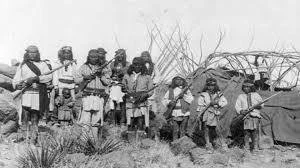I had an insight last weekend - actually it bordered on being a genuine epiphany.
Honestly I should have realized it sooner, because language... words... and communication are the central spine of my life.
In Trancework, we are trained at times to use "generalizations", as it creates a container within which a person can define their own meaning and details, while feeling like we're talking about the same thing.
As an example, if I said "let's imagine we're sitting in the most beautiful car in the world together". You would imagine sitting in a car that has the kinds of seats and colours and features that are beautiful to you, and I would imagine sitting in a car that has the kinds of seats and colours and features that are beautiful to me.
If we don't discuss the specific details of what we are imagining, we can easily assume that we are sharing an imagined reality... that we're experiencing the same thing, when in truth, you might be imagining a Rolls Royce, while I'm imagining a VW Beetle.
What I realized over the weekend is that the word "colonial" is a generalization that has very different - in fact opposite - meanings to different sets of people.
For me, living on Vancouver Island, being engaged and allied with local Indigenous Peoples, being a Gael, and being engaged and aligned with cultural and language reclamation and revitalization, "colonial" refers to the forces of empire, of genocide, of the unjust exertion of power on the "other".
It refers to domination and materialism and there really isn't much that is positive about any of that from my view. I stand, allied with people who are opposing imperial power (Specifically the British Empire past and present).
What I realized is that for many... particularly in the United States, "colonial" refers to identifying with the Independence movement that led to the American war of Independence.
King George III of England is rumoured to have referred to these independence seekers as "ungrateful colonials" and is documented to have said "a traitor is anyone who does not agree with me".
So for these Americans, the term "colonial" means taking up a position and being allied with those who are being oppressed, and who reject imperial power - and identifying as a "colonial" means fundamentally standing up against imperial power.
So, when you ask an individual to participate in "de-colonization" - it means not only different - but entirely opposite things to people occupying one of these two positions.
For one group, it would mean deconstructing systems of oppression, and for the other it would mean surrendering systems of resistance - even though fundamentally we are all talking about unwinding our relationship with oppressive power... and in many cases the VERY SAME oppressive power.
This is the downside of generalizations - especially when we don't know we're using a generalization; when we assume that there is only one definition of a term.
A shortcut might be just to ask ourselves, "does this word I'm using encapsulate a complicated group of dynamics"? If the answer is "yes". Then we can know that it's probably a generalization, and as such, we need to get much, much more clear in our conversations.
What are the specific dynamics we are talking about, and what is our position in relation to those dynamics?
Diving beneath the generalization is KEY to making progress.
There is nothing that expends more energy in a fruitless way than to get into an argument, and only much later... after a lot of exertion... discover that you are actually in agreement on the fundamentals, and have been arguing the subjective use of language the whole time...



